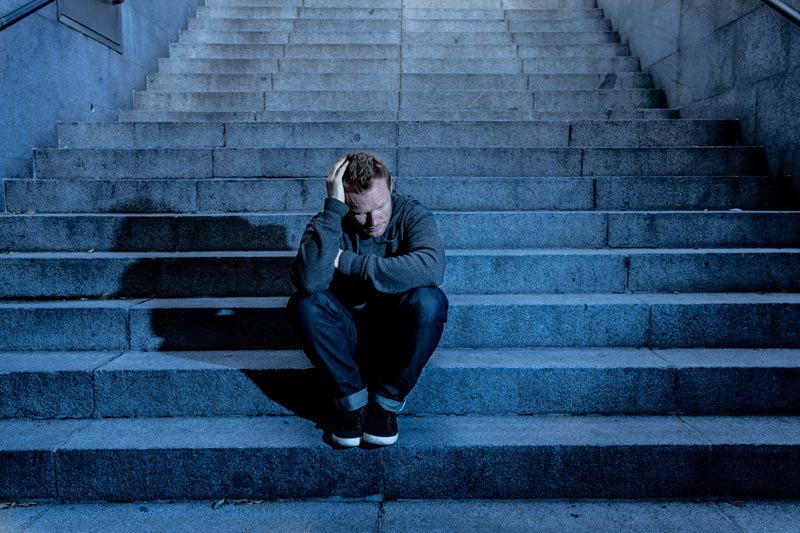Alone Time in Recovery
Sometimes a person in recovery from a substance use disorder can find themselves spending lots of time alone.
Maybe they are embarrassed about things they may have said or done while they were using drugs or alcohol. Maybe they just need some time to themselves to clear their heads and prepare to return to their daily routine. Maybe drugs or alcohol made them more extroverted than they naturally are and so sobriety has led them to be more introverted again.
Whatever the reason for it, this tendency to spend time alone may be no problem at all. It might even be beneficial in some ways. Beneficial, that is, unless the time spent alone leads to loneliness.
Alone & Lonely Are Not the Same
We want to be clear: spending time alone does not automatically mean a person is lonely. As we have noted, spending time alone can be helpful—especially for introverts who need more alone time to recharge their batteries, think creatively, and reset their overall mood.
But even introverts need a healthy dose of human interaction now and again. Without it, it is all too easy to start feeling lonely and to fall into thought patterns—replaying the past and worrying about the future—that can lead to a relapse.
Earlier, we suggested that some people in recovery may isolate themselves because they are embarrassed about past words or behaviors. Unfortunately, this kind of avoidance of others is likely to lead to loneliness, which in turn can quickly lead a person down a spiraling path of negative thoughts. And that path frequently leads to relapse.
It would be far better, then, for a person who has regrets about the past to try to mend relationships and move forward rather than ruminating about things that can’t be changed. Speaking more broadly, taking steps to avoid loneliness is always a good idea when it comes to protecting your sobriety.
Finding Your People Helps You Fend Off Loneliness
You may already have a strong group of friends and supportive family members who are willing and ready to hang out with you at a moment’s notice so that you can keep loneliness at bay. You may also find that your 12-Step program (or other recovery support program) provides some of the ongoing interaction you need to stay engaged with others.
Still and all, it might be beneficial to expand your social network a bit in order to prevent loneliness. Obviously, you cannot head down to the local bar or go clubbing in an effort to make new friends. Fortunately, there are plenty of other options.
- You could get more involved with your faith community.
- You could find a volunteer opportunity that will connect you to others who are passionate about a cause that is meaningful to you.
- You could get involved in a low-key (or competitive) sports community (though, for obvious reasons, you should avoid anything that calls itself a “beer league”).
- You could dive into the local arts scene—either as a patron or a participant (or both).
Don’t Panic If You Find Yourself Alone Sometimes
While building and maintaining strong, supportive relationships is undoubtedly important to your sobriety, you shouldn’t force yourself into social situations that don’t serve you well.
For example, you might find yourself at a social gathering—a backyard barbeque, a birthday party for a friend, a company gathering, or any of a number of situations—that start out innocent enough but turn out to be a danger to your sobriety. Maybe there is a lot of drinking going on. Maybe someone has brought along some drugs, hoping to amp up the party. Maybe you just feel overwhelmed by all of the people.
In a case like that, removing yourself from the situation is far better than sticking around—even if it means you find yourself alone for the remainder of the day or evening. Sometimes that is the best thing for you—and if it isn’t, you can call a supportive family member, friend, or your sponsor to see you through the moment of temptation caused by the social situation you were in.
You Are Welcome at French Creek Recovery Center
When loneliness has led to a substance use disorder or a relapse, don’t try to overcome the problem all alone. Instead, let the compassionate team at French Creek Recovery Center create a personalized treatment plan designed to help you regain and maintain your sobriety. We provide strategies and resources that can help you begin (or restart) your recovery journey with confidence. A substance use disorder can make you feel alone, but we are always here to help when you need us.

